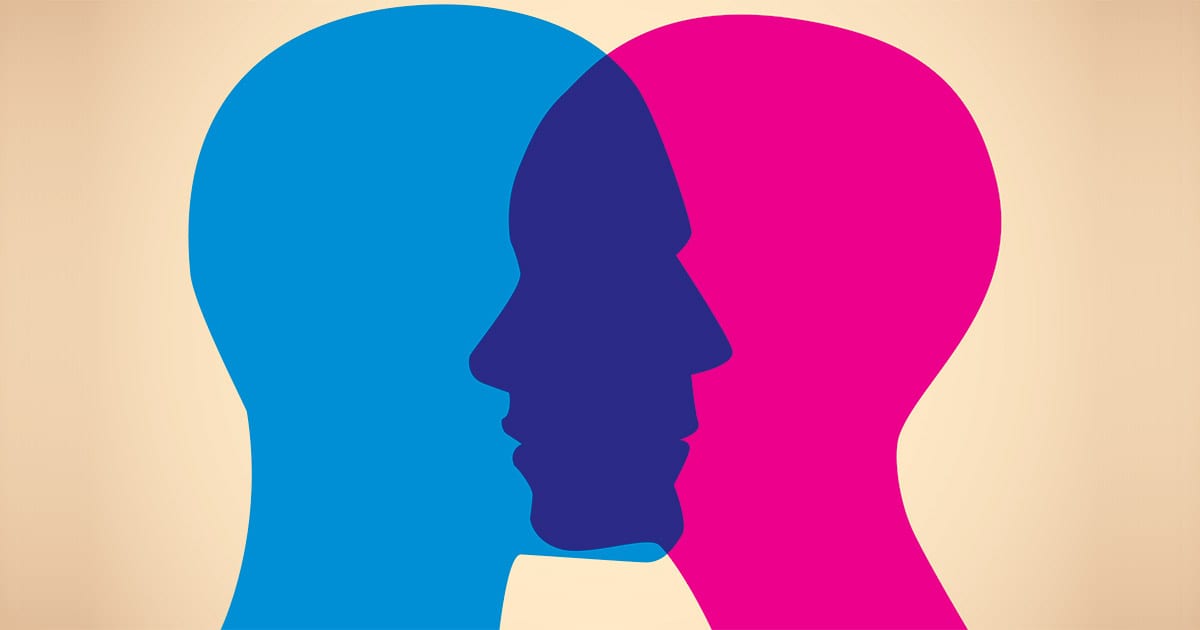Why Gender Specific Treatment?

Since the 1950s, specialized addiction treatment for women and men has been available. At that time, addiction treatment programs began to address the disparate needs of men and women in recovery. Before that, all the research and development regarding addiction treatment programs were geared toward men and their needs.
Women and men develop, experience and recover from addiction differently. Because of this, we have made Extra Mile Recovery a place for men to recover.
However, we do help find treatment for women. Our goal is to help find each and every person in need of treatment, find a facility that is right for them.
All the clinical experience and modern gender research point to one thing – women and men should be treated for their addictions separately. Men and women have strong differences in their pathways to addiction; the frequency in use of substances; and biological and neurological disparities. There are also differences in the types of substances used by men and women. And there are dissimilarities between men and women in the disorders that occur together with their substance use. Simply put, men and women have different reasons for entering treatment, different needs within the treatment program and different goals for recovery.
LGBTQ Integrated Addiction Treatment
According to the National Institutes of Health (NIH), sexual minorities have higher rates of substance misuse and substance use disorders than those who identify as heterosexual. Factors may include LGBTQ culture, stigma, violence and harassment, co-occurring behavioral health issues and exigent stressors. Providing a safe space to discuss sexuality, gender identity and their parallels to addiction is integral to the Extra Mile treatment model.
The following 9 Reasons illustrate why gender-specific treatment is most effective:
1. Relationships
Addiction treatment is often the first opportunity for women and men to begin to establish sober friendships and work on relationship skills. While in active addiction, these skills may have been lost. Group therapy sessions, outside meetings and community outreach allows those in treatment to establish safe, healthy relationships and find support with members of their own gender without distractions.
2. Trauma
Healing the effects of trauma is an important part of addiction recovery. Psychological trauma is damage to the mind that occurs as a result of an extremely distressing event. Trauma is often the result of overwhelming stress, or the inability to process the emotions involved with the negative experience. Men and women respond to physical, emotional and sexual trauma differently. Trauma is a recurring theme in addiction treatment, particularly in the treatment of addicted women. Many of our clients tell us they feel most comfortable processing traumatic experiences with like-minded individuals.
3. Anger
Both men and women experience anger and need to work on anger management in their own ways. At one time, anger and anger management was thought to be an issue for men only. Anger does manifest itself differently in women, but it exists and should be treated as gender-specific.
4. Biology
The pathways to addiction are vastly different in men and women. Women develop substance use disorders in less time than men, it’s called “telescoping”. The ill effects of substance use are more severe in women. Women are more susceptible to heart disease, liver damage, infectious diseases and breast cancer. And women have unique issues associated with reproduction and pregnancy.
5. Stigma
Women are less likely to enter addiction treatment than men. Often because the stigma for women, especially older women or those with young children, seems to be greater than that of men. This is often because of the more traditional women’s roles of childbearing, child rearing and societal mores.
6. Safety and Lack of Distractions
For those who have experienced the trials of addiction, the need for sanctuary is vital. Men in gender-specific treatment work with men and women recover together with women. With gender specific treatment, there are fewer intimate distractions and our clients say they feel more comfortable discussing personal, even embarrassing issues with the same gender.
7. Strength and Empowerment
Recovery is all about finding the place from which each individual develops strength. And acquiring this through strength-based counseling, is different in men and women. Self-acceptance, self-assurance and self-discovery are all experienced differently in men and women. Women must find the often-hidden sources of power within. Men seek a partnership model in client-staff relationships. Men and women both look for successful, gender exclusive role models and empowerment through their own specific goals. Resources such as spirituality, rekindled passions and relationships are experienced more effectively in gender specific environments.
8. Family Responsibilities
Men and women have different family responsibilities and relationships. And the stigma associated with addiction might be different for men and women within the family system. Addiction wounds all the members of the family and relationships have to be restructured. Women may have more acute responsibility and guilt regarding their children. A gender specific program for women focuses simultaneously on the needs of the woman and her children. Men may feel they have “let the family down”. A gender specific program for men emphasizes economic and personal self-sufficiency. The family system will be adjusted through the recovery process and the new roles are often gender dependent.
9. Communication
Men and women often communicate differently. And they listen differently. When men and women are in co-ed groups women tend to “nurture” and men tend to want to “fix things”. With gender specific treatment, men have an opportunity to practice listening and emoting. Women are given a forum to be heard. And to build strength in their convictions.

Certainly, the goal of recovery is not exclusion or complete independence. It is one of the reasons we provide town and country excursions and “real life” experiences during treatment. The goal of recovery is to find inner strength and a positive support system and community. We want our clients to be inspired about their new life. And bolstered by a healthy sense of self-worth. We learn from our clients every day. And they tell us that the safety and comfort of gender specific treatment gives them the foundation they need. To build and rebuild lasting relationships for successful long term recovery.
